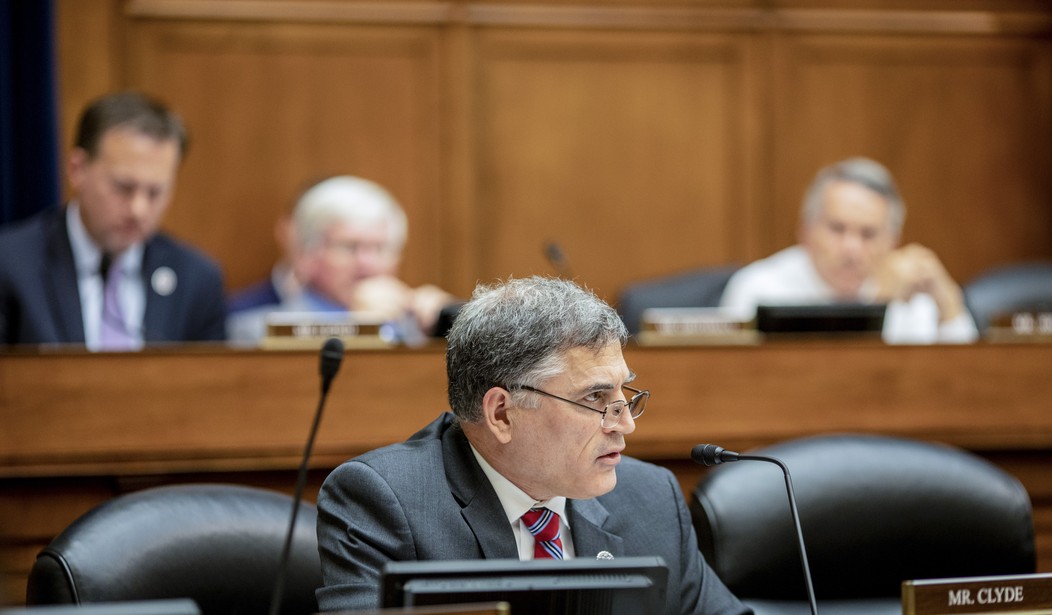Threats to hunting and fishing typically emanate from the radical Left. It takes the form of lead bans, closing public lands to new outdoor opportunities, and stopping hunting altogether, for instance.
But one Republican bill, the RETURN Act, poses a threat to true conservation efforts.
Here’s why it’s problematic.
The RETURN Act is Dividing Sportsmen’s Community
Congressman Andrew Clyde (R-GA) has introduced the RETURN (Repealing Excise Tax on Unalienable Rights Now) our Constitutional Rights Act.
He claims he’s responding to Democrat Congressman Don Beyer’s Assault Weapons Excise Act, which seeks to impose a 1,000 percent excise tax on semi-automatic firearms like AR-15’s. Beyer’s bill is misguided and obtuse. But this legislation isn’t a solution either.
It would jeopardize conservation funding in this country by repealing the Pittman-Robertson Act of 1937. The RETURN Act, if passed, would create a “new” subaccount of $800 million derived from offshore oil and gas royalties similar to the Land and Water Conservation Fund (LWCF).
In fiscal year 2023 and 10 each fiscal year thereafter, the Secretary of the Treasury shall transfer to the fund for deposit in the subaccount the lesser of— ‘‘(i) $800,000,000, or ‘‘(ii) the sum of— ‘‘(I) the amounts deposited in the 16 Treasury under section 9 of the Outer Continental Shelf Lands Act (43 18 U.S.C. 1338) during the preceding fiscal year, and 20 ‘‘(II) the amounts deposited in the Treasury under section 35 of the Mineral Leasing Act (30 U.S.C. 191).
The problem here, however, is twofold: First, the Biden administration is undermining oil and gas production in this country. How would revenue be generated given Biden’s War on Energy? Second, this amount is $700 million less than the $1.5 billion generated alone last year. That’s not an adequate substitute.
Recommended
The Pittman-Robertson Act Explained
Last century, popular wildlife species were declining due to market hunting. The firearms and ammunition industry, in turn, asked Congress to impose an excise tax on their products to generate and replenish conservation funding. This culminated with the Pittman-Robertson Act of 1937.
The law levies a 10 percent excise tax on pistols and revolvers and an 11 percent excise tax on ammunition and rifles. It’s ultimately collected at the manufacturer or importer level. Then, the Department of Interior enlists the Wildlife Restoration Trust Fund to disburse funds to all 50 states according to “land area and hunting and fishing licenses.”
This ‘user pays-public benefits’ system of wildlife funding is so well-designed the Tax Foundation deemed it a “good excise tax.”
“Because it respects the benefit principle so well, the tax enjoys general support among America’s sporting and outdoor community,” it wrote. “The excise tax on hunting and fishing equipment can teach us some lessons about well-designed excise taxes.”
Outdoor Life describes how the law stewards monies responsibly:
Under the current framework, states must match incoming P-R dollars with $1 for every $3 received. That state money typically comes from hunting license dollars. The existing system ensures that states are incentivized not to divert their hunting license funds toward things like road construction projects or correctional facilities.
Since P.R.'s inception, over $15 billion has been generated for wildlife conservation, habitat restoration efforts, target shooting ranges, and hunter education courses.
P.R. Act Doesn’t Infringe on Gun Rights
Does Rep. Clyde’s claim about excise taxes infringing on gun rights hold water? Hardly.
“The Pittman-Robertson tax is not an infringement on Second Amendment rights, from the perspective of the firearm industry,” said Mark Oliva, managing director of public affairs at National Shooting Sports Foundation (NSSF), in an email to Townhall.com. “This is an excise tax levied on firearm and ammunition manufacturers and not on individual gun owners directly. The excise tax cost increases are passed along to the customer purchasing firearms and ammunition, but this tax doesn’t prevent law-abiding Americans from exercising their Second Amendment rights. In fact, this tax provides the means for gun owners to further exercise their gun rights for all lawful purposes when these funds are used to build new, or improve existing public shooting ranges and restore and sustain wildlife and the habitats in which they thrive.”
Oliva continued, “This idea sounds good in a legislative title, but would be devastating to wildlife management, hunting and recreational shooting across the board. This is a solution in search of a problem. No firearm or ammunition manufacturers have called for this legislation because they know this would surrender the gains made for wildlife recovery and sustained management since 1937.”
Todd Adkins, vice president of government affairs for Sportsmen’s Alliance, concurred with Oliva.
“The RETURN Act certainly raises questions within the hunting and fishing community about who and who does not support effective fish and wildlife management. While we continue to battle anti-hunting extremists who want to end all hunting, everywhere, sportsmen remain on high alert for problems created from within the ranks,” Adkins noted in an email to Townhall.com
It seems Rep. Clyde’s efforts are backfiring on him. How so? As of July 13th, three original co-sponsors—Rep. Markwayne Mullin (R-OK), Rep. John Rutherford (R-FL), and Rep. Austin Scott (R-GA)—withdrew support for the bill.
And they won’t be the last Republicans to abandon it.
Conclusion
The RETURN Act has no likelihood of passing and it won’t bolster our Second Amendment rights.
Why give ammunition to anti-hunters and far Leftists here, House Republicans? They support gutting Pittman-Robertson funds too.
This distracts us from fighting actual gun control. Worse, you risk alienating sportsmen and women who strongly identify with the Right.
Do the right thing and reject the RETURN Act.

























Join the conversation as a VIP Member